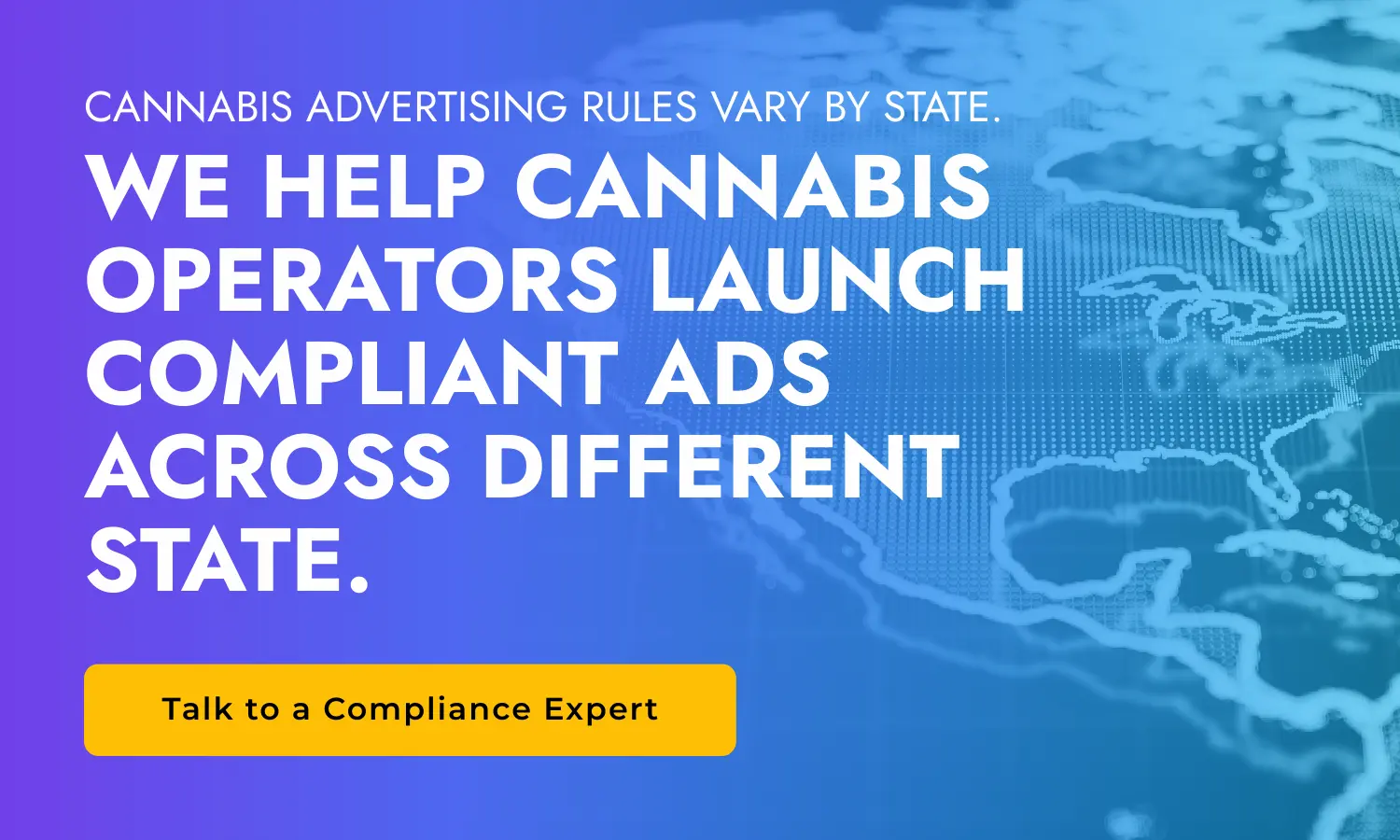Maine State Advertising Regulations
Maine legalized medical marijuana back in 1999, and recently legalizing adult use in 2018 despite the fact that recreational dispensaries were not able to open until 2020.
Listed below are provisions related to digital advertising:
Signs, advertising and marketing used by or on behalf of a licensee may not be placed or otherwise used within 1,000 feet of the property line of a preexisting public or private school, except that, if a municipality by ordinance or other regulation, or, in the case of a town, plantation or township located in the unorganized and reorganized areas, the Maine Land Use Planning Commission, chooses to prohibit the placement or use of signs or advertising by or on behalf of a marijuana establishment at distances greater than or less than 1,000 feet but not less than 500 feet from the property line of a preexisting public or private school, that greater or lesser distance applies.
Other provisions related to digital advertising
A prohibition on unsolicited advertising or marketing on the Internet, including, but not limited to, banner advertisements on mass-market websites.
A prohibition on opt-in advertising or marketing that does not permit an easy and permanent opt-out feature.
Signs, advertising and marketing used by or on behalf of a licensee may not involve advertising or marketing that has a high likelihood of reaching persons under 21 years of age or that is specifically designed to appeal particularly to persons under 21 years of age.
A retail marijuana to a food product if the manufacturer of the food product holds a trademark to the food product’s name, except that a retail marijuana product’s manufacturing facility licensee may use a trademarked food product if the licensee uses the product as a component or as part of a receipt and if the licensee does not state or advertise to the consumer that the final retail product contains a trademarked food product.
Signs, advertising and marketing used by or on behalf of a licensee may not violate any other requirement or restriction on signs, advertising and marketing imposed by the department.
Signs, advertising and marketing used by or on behalf of a licensee may not be misleading, deceptive or false.
A prohibition on advertising or marketing directed toward location-based devices, including, but not limited to, cellular telephones, unless the marketing is a mobile device application installed on the device by the owner of the device who is 21 years of age or older and includes a permanent and easy opt-out feature.
A prohibition on health or physical benefit claims in advertising or marketing, including, but not limited to health or physical benefit claims on the label or packaging of adult use marijuana or an adult use marijuana product.







